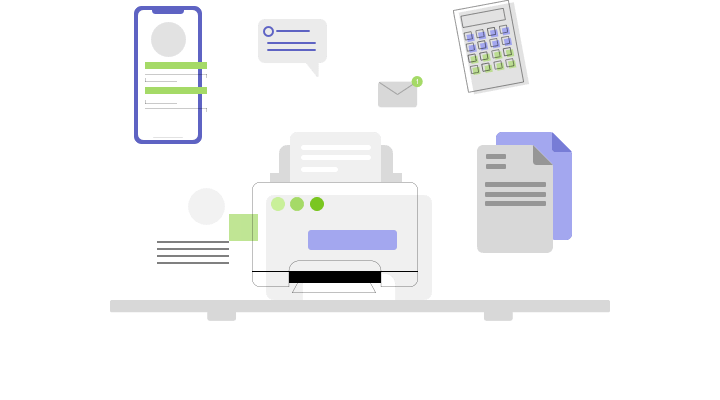It’s the practice of accurately recording, monitoring, and reconciling petty cash https://www.hkkurdistan.org/?p=15702 transactions to maintain clean, audit-ready books. You might wonder, “why keep physical cash around when you already have online banking and business credit cards? ” Petty cash offers convenience, speed, and flexibility for handling minor, day-to-day expenses. Find out how businesses determine the right petty cash fund size to efficiently manage daily operational expenses. At the end of the period or year, the petty cash balance will be present on the company’s balance sheet with cash on hand and cash in the bank.
- It is often used to reimburse employees for relatively low cost purchases, such as a birthday cake for an employee or breakfast treats for the morning staff meeting.
- Digital tools let you scan, store, and track petty cash transactions all in one place—streamlining your accounting process.
- Fast and timely replenishment of the petty cash fund is essential to prevent operational disruptions and manage consistency in your financial records.
- Employees who don’t understand the petty cash system are more likely to make errors or skip important steps.
- If you’re planning to create a petty cash fund, there are three basic procedures that are essential to follow.
- Repeated discrepancies could point to deeper issues like missing documentation or potential fraud.
Replenishment timeliness

The amount you keep in your petty cash account will depend on the size and nature of your business. Small businesses might keep as little as $50 on hand while a larger company with various outgoings should consider having at least $150. Recording petty cash expenditures is an important aspect of bookkeeping for beginners. However, other small business owners invest in outsourced bookkeeping services to free up valuable time and make sure every business expense is recorded correctly. Petty cash is a small amount of actual cash that a company has on hand to purchase items that cost so little that cutting a check doesn’t make sense or isn’t realistic.
Using corporate cards to simplify payments
- Train staff on policies, documentation requirements, and reporting procedures.
- It outlines who can access the funds, how much can be spent at a time, and what types of purchases qualify.
- This reconciliation process helps maintain the accuracy and integrity of the petty cash system and ensures that the fund is used appropriately.
- Every time petty cash is used, the expense should be recorded, including the amount spent, the date, and the purpose of the expenditure.
- If there’s a shortage, add the Total Withdrawals and Cash Short and write the check for the total.
It involves keeping track of all deposits and withdrawals from the petty cash fund and ensuring that each transaction is what is the usual amount of money kept in a petty cash account? accounted for. If credit cards or digital payment options are not always feasible for minor expenses, a larger petty cash fund can serve as a practical alternative. The replenishment cycle, or how often the fund is refilled, also impacts the initial amount; longer periods between replenishments may require a larger starting balance. A petty cash fund provides a small, readily available amount of cash for minor business expenses.
Record petty cash transactions in your ledger
To handle petty cash reconciliation, regularly compare the petty cash balance Travel Agency Accounting with the receipts and expenses recorded. Document any discrepancies and adjust the records accordingly to maintain accurate financial accounts. Petty cash is commonly used for minor expenses such as purchasing office supplies, covering small repairs, and reimbursing employees for out-of-pocket costs. It simplifies the process for these transactions while requiring careful tracking to ensure accurate financial records. Before you fund a petty cash account, you need to appoint a petty cash custodian. The petty cash custodian is in charge of cashing the check you use to fund the account and maintaining the amount of cash in the cash box.

How To Record Petty Cash?
- Where petty cash isn’t feasible, it’s important to pursue another approach—such as corporate credit cards or expense management software—so as to benefit the business.
- Before finalizing anything, get your reconciliation report reviewed and signed by a supervisor or finance manager.
- Utilizing petty cash streamlines accounting processes by avoiding numerous small check or credit card transactions, which can be time-consuming and incur processing fees.
- Remember, while petty cash might seem like a small detail in your business operations, managing it well is part of building strong financial habits.
- Track petty cash in real time with clear dashboards and categorized reports.
Schedule regular fund reviews to ensure there’s always enough cash for daily needs. Without a clear approval process, unauthorized spending becomes more likely. Some employees may use funds for personal purchases or skip approval altogether.

When in doubt, please consult your lawyer tax, or compliance professional for counsel. Sage makes no representations or warranties of any kind, express or implied, about the completeness or accuracy of this article and related content. Petty cash should not to be used as an operating fund, i.e., to pay invoices for goods or services, to pay salaries or wages, or to make advances or loans. Even the smallest amount of income is taxable so even if you made less than $25,000, you most likely paid federal income tax.
